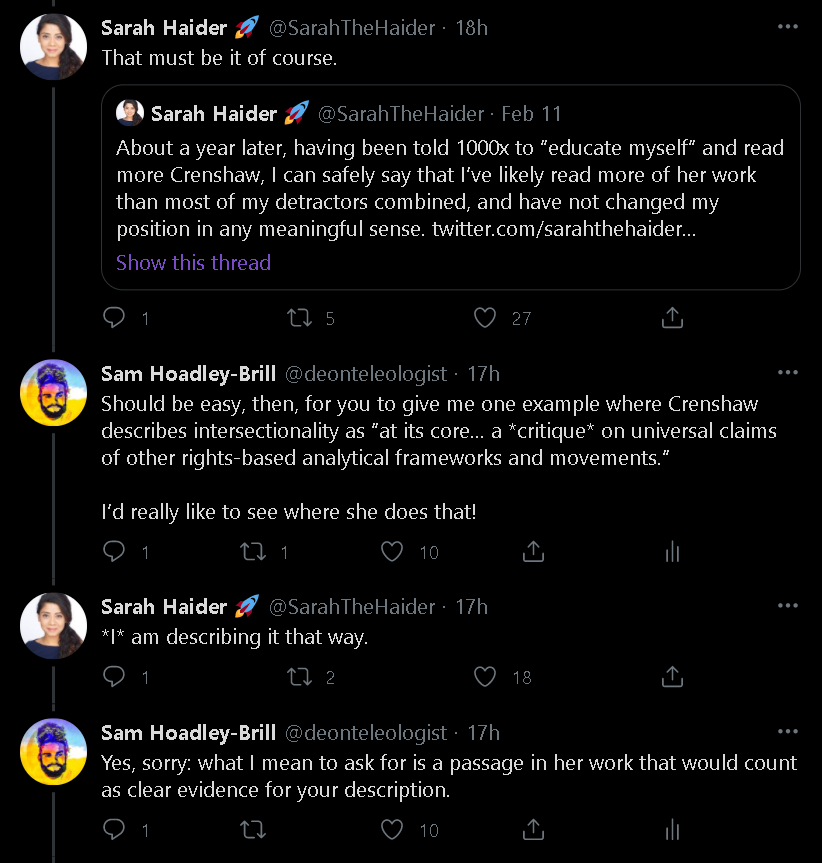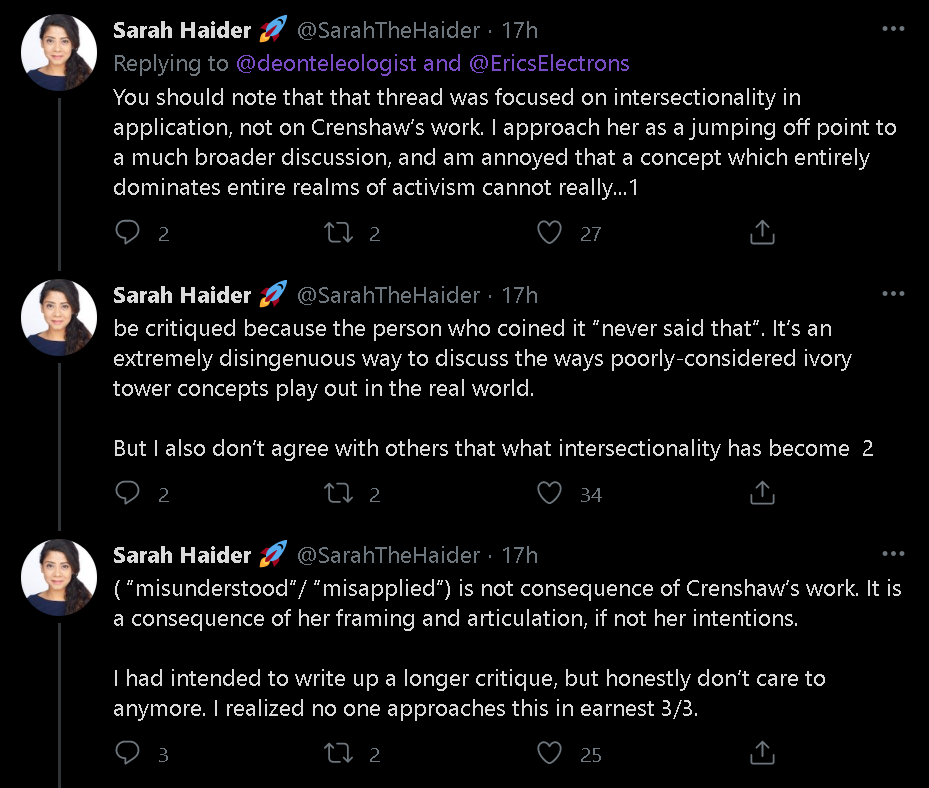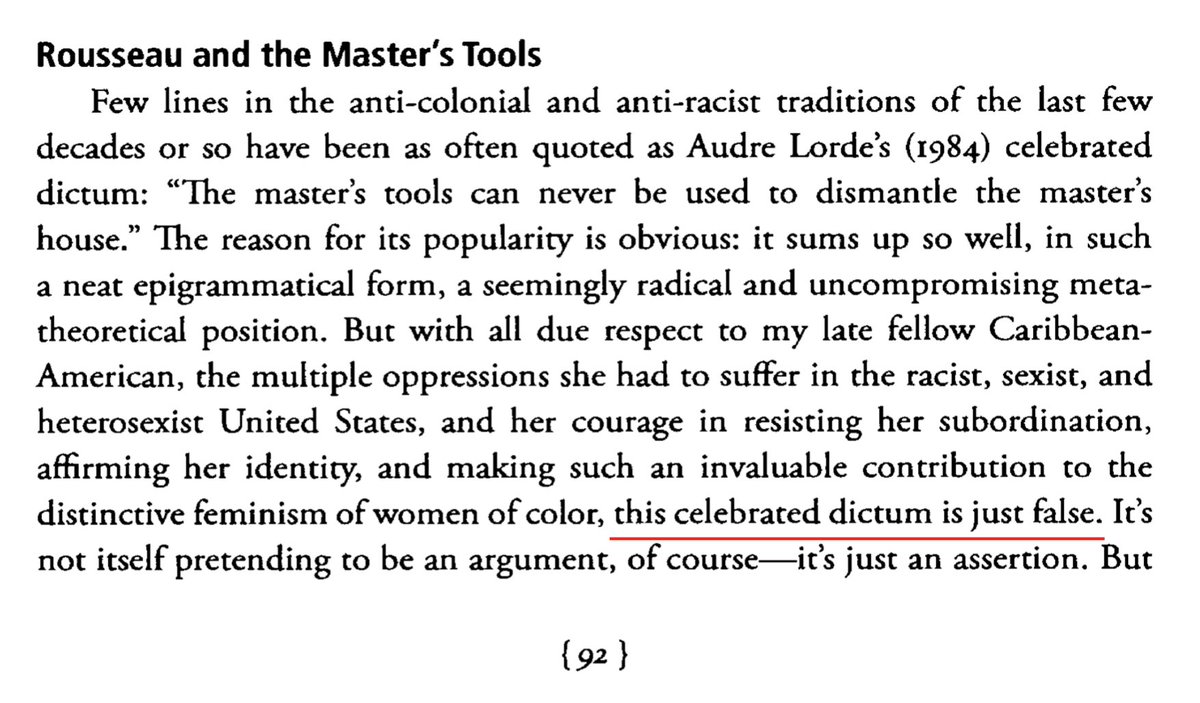
FULL STORY: I joined a class @ThaddeusRussell and @ConceptualJames were teaching called "Critical Theory and Postmodernism" because I knew it'd likely be the only chance I would ever have to confront James about the bullshit in his book (he's had me blocked since my review). 1/n
There were three courses. The first two covered Gramsci and the Frankfurt school philosophers, the last covered Lyotard, Beaudrillard, a bit of Derrida and a bit of Foucault. To my surprise, almost none of Cynical Theories' nonsensical depictions of the postmodernists came up. 2/
Further, we spent 2x time on the Frankfurt school as the postmodernists, the opposite of Cynical Theories, where the former were relegated to endnotes. I asked James if he could explain this at the end of the course; here's his answer (though you can see first minute cut out) 3/
Idk why that happened, seems to have been an honest mistake. What I remember from that is James saying Helen had greater authorship and they split royalties 33/67. If we take him at his word then only Helen is responsible for the outlandish depiction of pomo in Chapter 1. 4/
As you see in the previous tweet, James is now cool with postmodernism--the OG postmodernists, at least. Maybe he can write something publicly clarifying this for his fans who have read Cynical Theories and were instructed to think those ideas are destroying civilization? 5/
Finally, @ThaddeusRussell thanks me for an "amazing question," says he wishes we could spend a whole hour on it. I want to take you up on this, Thad! Me, you and @ConceptualJames: let's do an hour or two. Let's do 3! You know I'll be polite and civil, as I was. What do you say?
• • •
Missing some Tweet in this thread? You can try to
force a refresh















